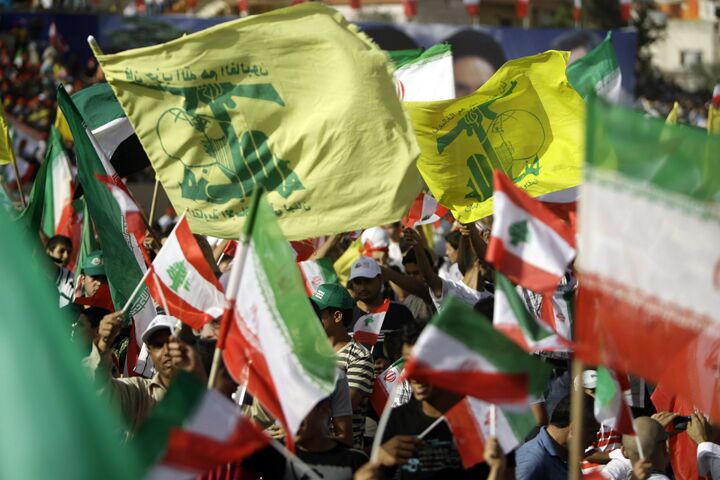
Iran-Backed Hezbollah Topples Lebanon’s Government
A new crisis erupted in Lebanon after Hezbollah’s ministers and its allies resigned from the national unity government on Wednesday. Eleven ministers of the 30-member cabinet quit in protest of the country’s involvement in the UN tribunal’s investigations of the 2005 assassination of former Prime Minister Rafik Hariri.
The United Nations tribunal is expected to indict several Hezbollah members this month for the murder of Hariri. Hezbollah fears it will lose popularity among the Lebanese masses if it is implicated in the assassination of one of Lebanon’s most popular politicians.
Naturally, Hezbollah and its supporters are doing everything they can to delegitimize the tribunal’s report, including labeling the tribunal as a tool of Israel.
When the current prime minister, Saad Hariri (the son of Rafik Hariri), refused to acquiesce to Hezbollah’s demands to remove Lebanon’s support from the investigation, Hezbollah threatened to pull the plug on the government. And when a last-ditch effort to keep the coalition government together by Saudi Arabia and Syria fell apart, Hezbollah followed through and walked out.
Normally, the collapse of a country’s coalition government does not demand this much attention. Lebanon, however, is different. It serves as a battleground for other countries to display their power of influence. Iran and to a certain extent Syria back Hezbollah, while Saudi Arabia and the United States throw their support behind Hariri’s faction. Nothing big happens in Lebanon without these countries being involved.
Therefore, the collapse of Lebanon’s government is a major development in the Iran-U.S. relationship.
According to the Jerusalem Post:
Hezbollah is a long-term Iranian project designed to build the legitimacy of the Islamic Republic of Iran in the Arab world by engaging in conflict with Israel. In May 2008, Hezbollah and Iran witnessed the potentially disastrous consequences for the success of this project that might result from the movement’s turning its guns against its fellow Lebanese and Arabs.
Back in 2008, Hezbollah brandished its military might in Beirut, forcing the Lebanese government to acquiesce to the Iranian proxy group’s demands for veto power within the government. At the time, Trumpet editor in chief Gerald Flurry explained how those actions meant the death of Lebanese democracy—even while Western media proclaimed that the compromise raised hopes for a more stable future for the country.
The events on Wednesday proved the Trumpet was right. According to the New York Times, Hezbollah, and therefore Iran, solidified its control over Beirut:
The collapse of Lebanon’s government on Tuesday signaled the final stage in Hezbollah’s rise from resistance group to ruling power. While Hezbollah technically remains the head of the political opposition in Beirut, make no mistake: The Party of God has fully consolidated its control in Lebanon, and will stop at nothing—including civil war—to protect its position.
The events on Wednesday also showcased America’s lack of influence in the country. It is no coincidence that Hezbollah’s ministers quit the government on the same day Saad Hariri met with U.S. President Barack Obama in Washington, d.c. As the Times noted, Hezbollah’s actions “highlight America’s limited influence.” It explains:
Washington lent strong rhetorical support to the Hariri coalition when it came first to power in 2005, but was unable to stop Hezbollah’s troops and their supporters from taking over the streets of Beirut and forcibly acquiring veto power over the government by gaining “the blocking third”—10 of the cabinet’s 30 ministerial seats. It was Hezbollah’s exercising of that power, with the resignation of the 10 opposition ministers along with one independent, that toppled the government this week ….
The last five years have proven America is unable to remove Hezbollah’s choke hold on Lebanon.
U.S. Secretary of State Hillary Clinton admitted as much during a recent press conference in Qatar. In response to a question about the Israeli-Palestinian conflict, Clinton said, “I wish there were a way that we could tell a lot of countries what they should do. … We can’t stop a lot of countries from doing things we disagree with, and that we speak out against.” Clinton admits America’s power of persuasion has shrunk. The only thing the U.S. can do now is speak out. However, in Lebanon, the U.S. has settled for merely monitoring the situation “closely.”
Meanwhile, millions of Lebanese worry that another civil war is about to erupt.
A similar situation threatens to play out in Iraq as well.
“Even as observers blame Iranian influence for the collapse of Lebanon’s coalition government Wednesday, the mullahs in Tehran seem to be extending their reach into the fledgling government in Iraq,” Fox News writes. In 2007 Moqtada Al Sadr, the Shiite Muslim cleric who led the Mahdi Army’s fight against U.S. troops in Iraq, fled to Iran after America’s troop surge. Since then Sadr’s militia has joined the Iraqi government and currently possesses 40 out of 325 seats in Iraq’s parliament.
Now, after three years, Sadr is returning to Iraq, where some Middle East experts fear he will exert the same influence over the Iraqi government that Hassam Nasrallah, leader of Hezbollah, exerts in Lebanon.
As America’s influence wanes in the region, Iran is filling the void. Its choke hold on Lebanon is complete, and it’s now maneuvering to use the same strategy in Iraq.
